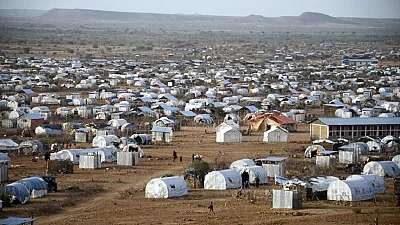Ethiopia, which hosts approximately one million refugees and asylum seekers, has announced new guidelines for the employment of recognized refugees.
The Ethiopian Refugees and Returnees Service stated that the House of Representatives has approved a law allowing refugees and asylum seekers who entered Ethiopia in 2019 to gain various benefits, including employment.
This decree aims to improve the living conditions and economic benefits of recognized refugees, asylum seekers, and the host communities.
The Refugees and Returnees Service also revealed guidelines to outline the conditions under which refugees can work, ensuring their right to employment.
The guidelines, designated as Proclamation No. 02/2020, do not encompass all the rights stated in the Refugees Proclamation No. 1110/2018.
These draft guidelines were developed in collaboration with the Ministry of Trade and Regional Connections, the Ministry of Work and Skills, and the Ministry of Revenue, which are directly involved in migrant and returnee services.
The draft guidelines cover provisions related to employment, business activities, and taxpayer identification numbers for recognized refugees and asylum seekers.
These guidelines are in the final phase, with a public opinion forum prepared before their approval and implementation.
Ethiopia hosts over 823,000 refugees and asylum seekers, mainly from South Sudan, Sudan, Somalia, and Eritrea.
The majority reside in 24 refugee camps across five regional states, while over 70,000 live in the capital, Addis Ababa, as urban refugees.
In April, Ethiopia deported over 18,000 foreign nationals living illegally in the country.
The Immigration and Citizenship Service revealed that these individuals were expelled due to falsified residency permits.
Selamawit Dawit, the Director General of Immigration and Citizenship Services, presented a report to the House of People’s Representatives, highlighting that some individuals were involved in creating and selling counterfeit residency documents for financial gain.
Additionally, the report disclosed that some foreign nationals had engaged in illegal activities for several years under the guise of investment permits.
